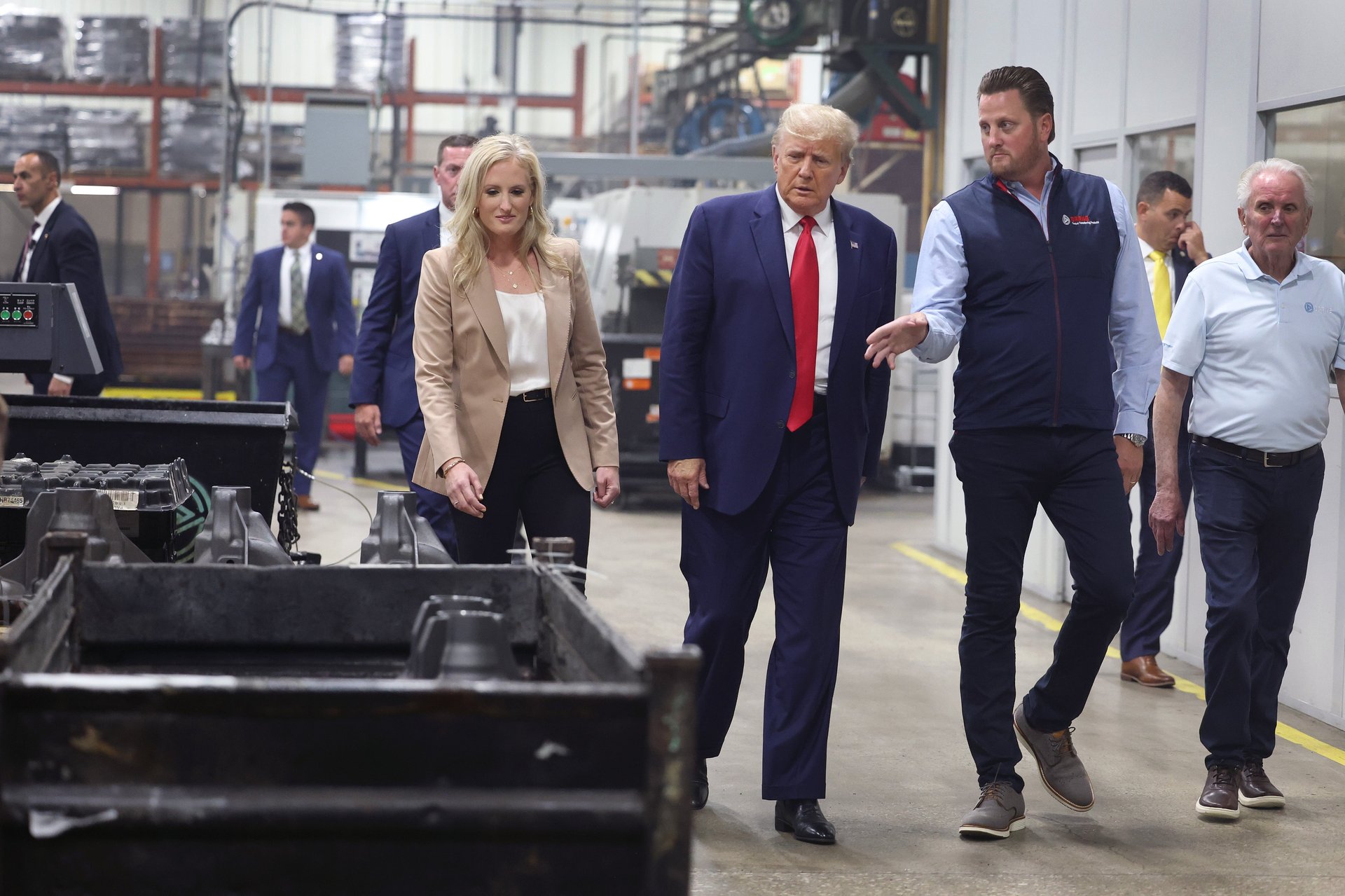Trump's tariffs would 'spell disaster' for GM, Ford — and the rest of the auto industry
His threatened taxes on imports would raise vehicle prices by thousands of dollars

More than a month before he’s set to take office, President-elect Donald Trump is already spelling trouble for the auto industry.
Suggested Reading
Last week, he threatened to slap “ALL products” imported from Mexico and Canada with 25% tariffs, as well as 10% duties on Chinese products coming into the U.S. Withdrawing that threat is contingent on those countries making progress on work to keep drugs — namely fentanyl — from flowing into the U.S. He also demanded that Mexico and Canada keep undocumented immigrants from entering the U.S.
Related Content
Tariffs of that magnitude would impact a lot of goods — some $1.3 trillion worth came from those countries alone in 2023 — and slam companies’ profit margins if they rely on products from those nations.
“A 25% tariff is quite high,” said Jack Rossbach, an assistant professor of international economics at Georgetown University in Qatar, noting that tariffs are usually placed on the value of the goods as a tax. “If you have a 10% profit margin, then a 25% tariff completely wipes out that profit margin.”
If Trump’s threats come to fruition, automakers are expected to be among the hardest hit.
Trump on Saturday threatened the BRICS geopolitical coalition of non-Western countries — Brazil, Russia, India, China, South Africa, and others — with 100% tariffs if they ditch the U.S. dollar. In the past, he’s floated general tariffs of up to 20% on imported goods and 200% tariffs on all vehicles made in Mexico.
Read More: Trump is threatening new tariffs on China, Canada, and Mexico. Here’s what products they would hit
S&P Global (SPGI) estimates that a 20% tariff on light vehicle imports from the United Kingdom and European Union, combined with 25% tariffs on imports from Mexico and China, could cost European and U.S. carmakers up to 17% of their combined annual earnings.
“Particularly exposed to potentially higher tariffs are premium OEMs Volvo Cars and JLR—given their high reliance on European production—and GM (GM) and Stellantis (STLA) due to the volume of cars they assemble in Mexico and, partly, Canada,” S&P Global Ratings credit analyst Lukas Paul said in a statement.
Bernstein analyst Daniel Roeska said last week that Trump’s tariffs on Mexico and Canada would “spell disaster for the U.S. auto industry and Detroit Three manufacturers.” Wolfe Research has estimated a 25% tariff would add about $3,000 to the average cost of vehicles sold in the U.S.
General Motors and Ford (F) Motor Co. produce eight and three models, respectively, in Mexico and have facilities in Canada. Stellantis produces several Ram models in Saltillo, Mexico, and builds some Chrysler and Dodge cars in Canada. Toyota Motor (TM) makes the Tacoma in Mexico, plus the RAV4 and some Lexus models in Canada, while Hyundai Motor Co. (HYMTF) builds some Hyundai and Kia models in Mexico.
Read More: Investors say Trump’s universal tariff is the greatest potential risk to the U.S. economy in 2025
The Alliance for Automotive Innovation, a trade association that represents Ford, GM, Toyota, Hyundai, Stellantis, and others in the industry, declined to issue a statement. However, the alliance did point to U.S. Census Bureau data on trade between Canada, Mexico, and the U.S.
About $211 billion worth of motor vehicles and parts entered the U.S. last year from Canada and Mexico, according to the Census Bureau. That’s about 52% of the overall $403 billion worth of vehicles and parts that imported in 2023.
A bluff or a promise?
But there’s one big question languishing in every analysis of Trump’s tariff threats: Is it just a bluff?
“Given the magnitude, we’d expect most investors to assume Trump ultimately does not follow through with these threats,” Wolfe noted last week. “However, we can’t say for sure.”
Odracir Barquera, the general director of the Mexican Association of the Automotive Industry (AMIA), warned that it is important to wait until Trump is sworn in next month and announces official policies to assess any actions.
“The main objective is for the three countries to work together to deepen our shared competitiveness as a North American region, for the benefit of our societies,” Barquera added in a statement provided by the AMIA, noting that the “automotive sector is the best case study of our regional integration.”
Others, like Canadian Automotive Parts Manufacturers Association President Flavio Volpe, are calling Trump’s bluff.
“We’ve been exactly here before,” Volpe told Automotive News Canada. “The social media tactics are always more bombastic than the tough but reasonable negotiations.“
Regardless of the nature of Trump’s threats, it did help secure him quick meetings with both Canada’s prime minister and Mexico’s president.
After an “excellent conversation” over the phone, Mexican President Claudia Sheinbaum said she had told Trump that “caravans are not reaching the northern [US] border because Mexico is taking care of them.” On Thursday, she said “there will be no potential tariff war” between the U.S. and Mexico.
Canadian Prime Minister Justin Trudeau flew to Trump’s Mar-a-Lago resort in Florida on Friday and had what Trump called a “very productive meeting,” where they discussed issues ranging from energy and trade to fentanyl. Earlier that morning, Trudeau said “there’s no question” Trump plans to hit Canada with tariffs, adding that “when he makes statements like that, he plans on carrying them out.”